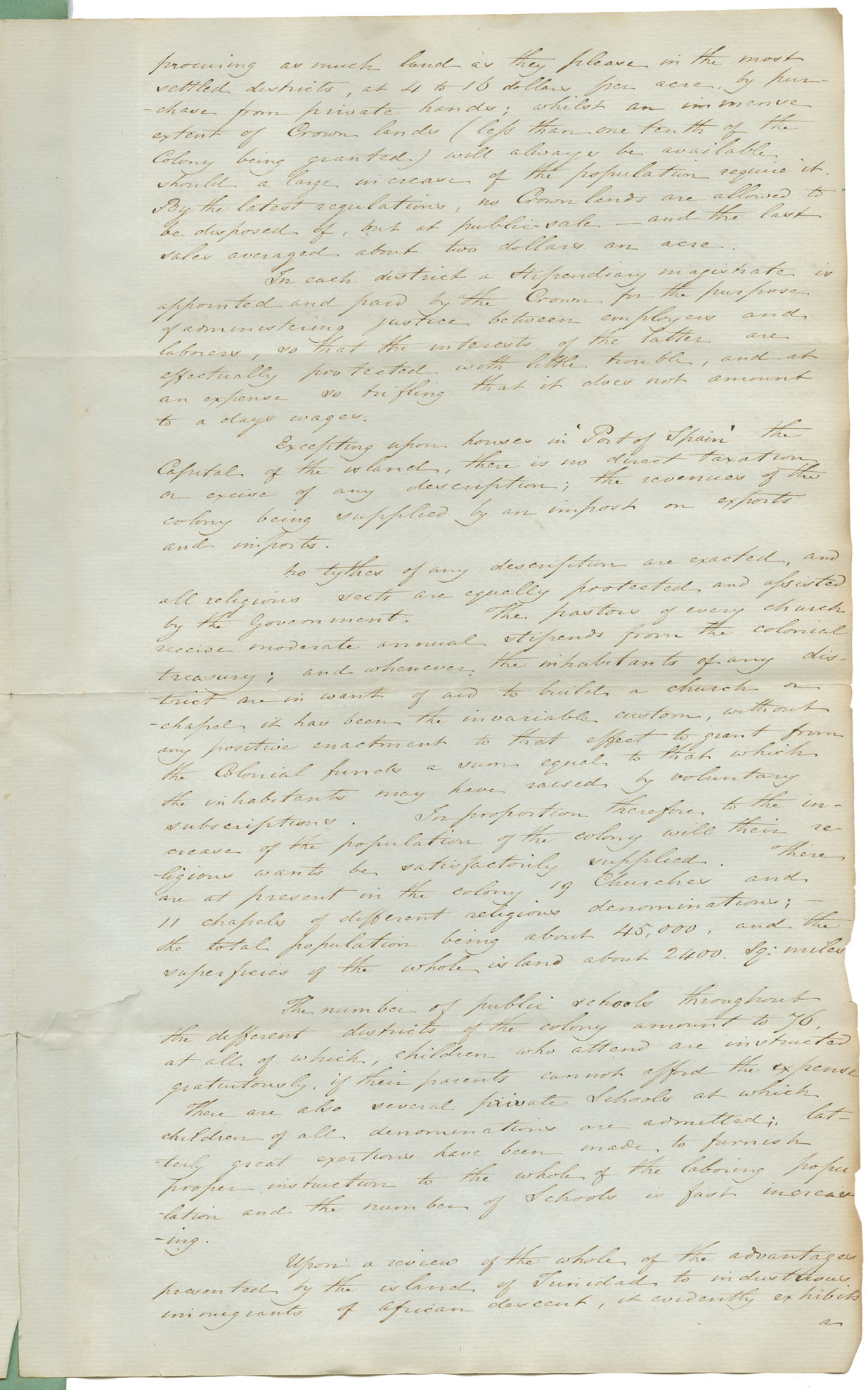Nova Scotia Archives
African Nova Scotian Diaspora
Letter from Mr. Burnley to the Lieutenant Governor, Sir Colin Campbell, on the ordinance of the Island of Trinidad for the encouragement of immigration to that Island
note: transcription publicly contributed - please contact us with comments, errors or omisions
procuring as much land as they please in the most settled districts, at 4 to 16 dollars per acre, by purchase from private lands; whilst an immense extent of Crown lands (less than one tenth of the Colony being granted) will always be available should a large increase of the population require it. By the latest regulations, no Crown lands are allowed to be disposed of, but at public sale __ and the last sales averaged about two dollars an acre. In each district a stipendiary magistrate is appointed and paid by the Crown for the purpose of administering justice between employers and laborers, so that the interests of the latter are effectually protected with little trouble, and at an expense so trifling that it does not amount to a days wages. Excepting upon houses in 'Port of Spain' the capital of the Islands, there is no direct taxation or excise of any description; the revenues of the colony being supplied by an impost on exports and imports. No tythes of any description are exacted, and all religious sects are equally protected and assisted by the Government. The pastors of every church receive moderate annual stipends from the colonial treasury; and whenever the inhabitants of any district are in want of aid to build a church or chapel it has been the invariable custom, without any positive enactment to that effect to grant from the Colonial funds a sum equal to that which the inhabitants may have raised by voluntary subscriptions. In proportion therefore, to the increase of the population of the colony will their religious wants be satisfactorily supplied. There are at present in the colony 19 Churches and 11 chapels of different religious denominations; the total population being about 45,000, and the superficies of the whole island about 2400 sq. miles. The number of public schools throughout the different districts of the colony amount to 76, at all of which, children who attend are instructed gratuitously, if their parents cannot afford the expense There are also several private schools at which children of all denominations are admitted; latterly great exertions have been made to furnish proper instruction to the whole of the laboring population and the number of Schools is fast increasing. Upon a review of the whole of the advantages presented by the island of Trinidad to industrious immigrants of African descent, it evidently exhibits a
Date: 3 August 1839
Reference: Commissioner of Public Records collection Nova Scotia Archives RG 1 volume 422 number 53

